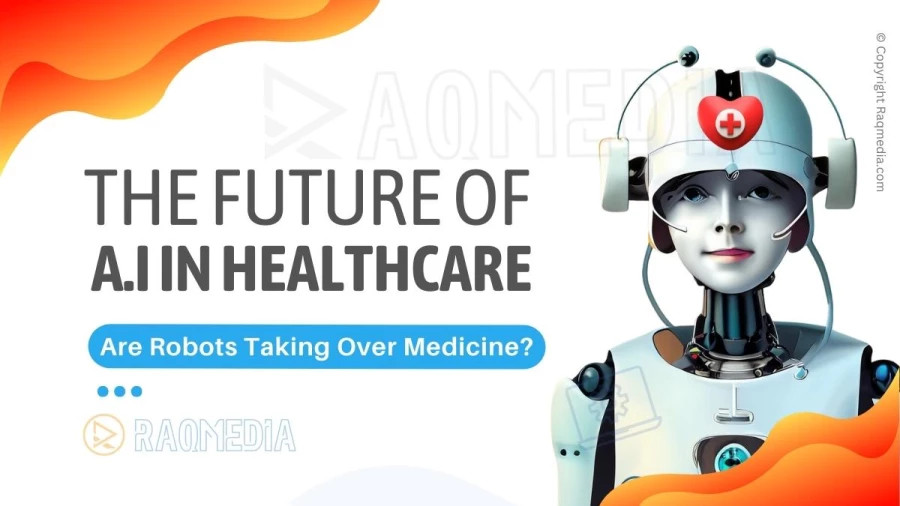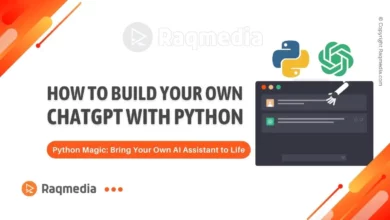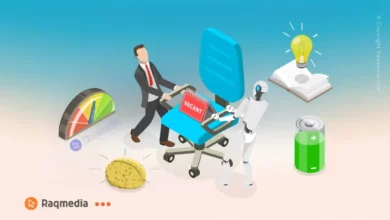Are you ready to witness the future of healthcare? Brace yourself for an exciting journey as we take a closer look at the incredible advancements in artificial intelligence (AI) that are revolutionizing the way we approach patient care. With AI technologies such as machine learning, natural language processing, and robotics taking center stage in healthcare, we are witnessing a transformative shift towards personalized and efficient medical treatment.
From early disease detection and diagnosis to precision medicine and remote care management, AI is leading the way towards a smarter healthcare system. The potential benefits are endless – reduced costs, improved patient outcomes, increased accessibility for underserved populations, and enhanced collaboration between healthcare providers. So buckle up as we dive into the fascinating world of AI in healthcare – where innovation meets compassion!
Table of Contents
- 1 Introduction to Artificial Intelligence in Healthcare
- 2 Applications of Artificial Intelligence in Healthcare
- 3 Benefits of Artificial Intelligence in Healthcare
- 4 Ethical Considerations and Challenges in AI Healthcare
- 5 Future Trends and Innovations in AI Healthcare
- 6 Illustrated AI Examples In Healthcare
- 7 Conclusion
Introduction to Artificial Intelligence in Healthcare
Artificial Intelligence (AI) has emerged as a transformative technology across various industries, and its impact on healthcare is increasingly significant. AI encompasses the development of intelligent systems that can perform tasks typically requiring human intelligence, such as Openai ChatGPT. In healthcare, AI is revolutionizing the way diseases are diagnosed, treated, and managed. Let's delve into the future of artificial intelligence in healthcare and explore its potential to shape the industry.
Applications of Artificial Intelligence in Healthcare
Disease Diagnosis and Predictive Analytics
One of the most promising applications of AI in healthcare is disease diagnosis and predictive analytics. AI algorithms can analyze vast amounts of patient data and identify patterns that might go unnoticed by human physicians. Early detection of diseases such as cancer, cardiovascular conditions, and neurological disorders becomes more achievable with the help of AI algorithms, leading to timely interventions and improved treatment outcomes.
Additionally, predictive analytics powered by AI can assist in forecasting disease progression and individual patient risks, enabling healthcare providers to develop proactive treatment plans.
Precision Medicine and Personalized Treatment
Another exciting area where AI is making waves is precision medicine and personalized treatment. AI-based genetic analysis allows healthcare professionals to tailor treatment plans based on an individual's genetic makeup. By analyzing a patient's genetic information, AI algorithms can predict how they may respond to specific medications, helping to optimize treatment outcomes and minimize adverse effects. Personalized medicine empowers healthcare providers to offer patient-centric care, considering each person's unique characteristics and needs.
Medical Imaging and Radiology

AI is transforming medical imaging and radiology, enhancing the accuracy and efficiency of diagnostics. AI-powered image recognition and analysis systems can detect abnormalities in medical images with high precision. For instance, AI algorithms can identify subtle signs of diseases in X-rays, CT scans, or MRIs that may be overlooked by human radiologists. Automated diagnostics and AI-assisted image interpretation not only reduce the chances of error but also expedite the diagnosis process, leading to prompt treatment initiation.
Robot-Assisted Surgery and Procedures
Advancements in AI have also given rise to robot-assisted surgery and procedures. With the aid of robotic systems, surgeons can perform complex procedures with greater precision, control, and minimally invasive techniques. Robots equipped with AI capabilities can assist surgeons in real-time decision-making, providing them with detailed insights and enhancing surgical outcomes. Robot-assisted surgery holds the promise of reduced complications, shorter hospital stays, and faster patient recovery.
Benefits of Artificial Intelligence in Healthcare
The integration of AI in healthcare offers a myriad of benefits for patients, healthcare providers, and the overall healthcare system.
Improved Accuracy and Efficiency
AI algorithms can analyze vast amounts of medical data and detect patterns and correlations that might be challenging for human physicians to identify. This leads to improved accuracy in diagnosis and treatment decisions, minimizing errors and reducing the risk of misdiagnosis. Additionally, AI systems can process data much faster than humans, enhancing the efficiency of healthcare workflows and enabling quicker access to critical information.
Enhanced Decision-Making and Clinical Outcomes
By providing healthcare professionals with data-driven insights and evidence-based recommendations, AI facilitates more informed decision-making. AI systems can analyze patient data, medical literature, and treatment guidelines to offer personalized treatment options, improving clinical outcomes. Moreover, AI can continuously learn and adapt from new data and feedback, further refining its decision-making capabilities over time.
Cost Reduction and Resource Optimization
The integration of AI can potentially lead to cost reduction and resource optimization within healthcare systems. AI algorithms can help identify cost-effective treatment options, reducing unnecessary procedures or tests. Additionally, AI can automate administrative tasks, freeing up healthcare professionals' time and enabling them to focus on patient care. By streamlining workflows and optimizing resource allocation, AI has the potential to make healthcare more affordable and accessible.
Patient-Centric Care and Experience
AI-driven healthcare enables a more patient-centric approach. Personalized medicine and treatment plans tailored to an individual's unique characteristics enhance the patient experience and satisfaction. AI-powered chatbots and virtual assistants can provide round-the-clock support, answering common questions, and offering guidance, thereby improving patient engagement and empowerment.
Ethical Considerations and Challenges in AI Healthcare
While the future of AI in healthcare holds immense potential, it also poses ethical considerations and challenges that need to be addressed.
Data Privacy and Security
As AI relies on vast amounts of patient data, ensuring data privacy and security is crucial. Safeguarding sensitive patient information from unauthorized access or breaches is paramount. Robust security measures and adherence to privacy regulations are essential to maintain patient trust and confidence in AI-driven healthcare.
Bias and Discrimination in AI Algorithms
AI algorithms are only as unbiased as the data they are trained on. If the training data is biased or not representative of diverse populations, AI systems can perpetuate biases and discriminatory practices. Efforts must be made to ensure fairness and inclusivity in AI algorithms to prevent exacerbating existing healthcare disparities.
Human-AI Collaboration and Responsibility
It is vital to establish a balance between human expertise and AI capabilities. While AI can augment decision-making, human healthcare providers remain responsible for final clinical judgments. Collaboration between humans and AI systems should be fostered, with clear guidelines on the roles and responsibilities of each to ensure patient safety and ethical practice.
Regulatory Frameworks and Guidelines
The rapid advancements in AI require the establishment of robust regulatory frameworks and guidelines. Regulations should address issues such as data privacy, algorithm transparency, and accountability. Developing ethical guidelines and standards for AI in healthcare will ensure its responsible and safe implementation.
Future Trends and Innovations in AI Healthcare
The future of AI in healthcare is brimming with exciting trends and innovations that hold tremendous potential to revolutionize the industry.
Integration of AI with Internet of Medical Things (IoMT)
The integration of AI with the Internet of Medical Things (IoMT) will enable seamless connectivity and data exchange between medical devices, wearables, and AI systems. This integration will enhance real-time monitoring, diagnosis, and treatment decisions, resulting in improved patient outcomes.
Blockchain Technology for Secure Data Sharing
Blockchain technology offers a decentralized and secure platform for storing and sharing medical data. By utilizing blockchain, patient data can be securely accessed and shared among healthcare providers, enabling comprehensive and coordinated care while maintaining privacy and data integrity.
Natural Language Processing and Chatbots in Healthcare
Natural Language Processing (NLP) enables computers to understand and analyze human language, opening avenues for AI-powered chatbots and virtual assistants in healthcare. Chatbots can answer patient queries, provide basic medical advice, and offer support, improving access to healthcare information and services.
AI-driven Drug Discovery and Development
AI is poised to revolutionize the drug discovery and development process. By analyzing vast datasets and identifying potential drug candidates, AI systems can accelerate the discovery of new therapies and streamline the development process. This holds the potential to bring novel treatments to patients faster and more efficiently.
Illustrated AI Examples In Healthcare
Conclusion
The future of artificial intelligence in healthcare is a transformative one, revolutionizing the way diseases are diagnosed, treated, and managed. The applications of AI, such as disease diagnosis, precision medicine, medical imaging, and robot-assisted surgery, offer numerous benefits, including improved accuracy, efficiency, and cost reduction. However, ethical considerations surrounding data privacy, bias, and human-AI collaboration must be addressed.
The integration of AI with technologies like IoMT, blockchain, NLP, and AI-driven drug discovery will shape the future of healthcare, enhancing patient care and clinical outcomes. As we move forward, it is crucial to embrace AI's potential while ensuring responsible and ethical implementation, prioritizing patient well-being and societal impact. The future of healthcare is AI-driven, and its potential to transform lives is truly remarkable.








#AIinHealthcare #FutureOfAI #HealthTech #DigitalHealth #MedicalAI #HealthcareInnovation #HealthcareTechnology #AIAdvancements #HealthcareRevolution #HealthcareTransformation #ArtificialIntelligence #HealthcareIndustry #HealthcareTrends #AIApplications #HealthcareData #MachineLearning #HealthcareAnalytics #EmergingTechnologies #HealthcareSolutions #HealthcareAutomation #PrecisionMedicine #DataScience #HealthcareAI #HealthcareIT #InnovationInHealthcare #HealthcareResearch #AIinMedicine #HealthcareLeadership #PatientCare #HealthcareInsights #HealthcareFuture
🚀 Explore the future of AI in healthcare with us! Discover how AI is transforming patient care and more. Don’t miss out! Read now: https://www.raqmedia.com/future-of-artificial-intelligence-in-healthcare/ 👩⚕️🤖
Follow, like, and share to spread the knowledge! 📚👍
.
.
#raqmedia #AIinHealthcare #HealthTech #DigitalHealth #MedicalAI #HealthcareInnovation #HealthcareTechnology #AIAdvancements